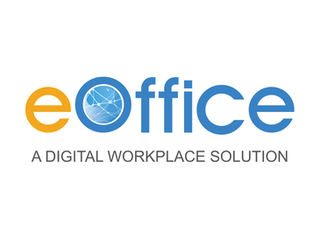Related Research Articles
E-government is the use of technological communications devices, such as computers and the Internet, to provide public services to citizens and other persons in a country or region. E-government offers new opportunities for more direct and convenient citizen access to government and for government provision of services directly to citizens.

Corporate social responsibility (CSR) or corporate social impact is a form of international private business self-regulation which aims to contribute to societal goals of a philanthropic, activist, or charitable nature by engaging in, with, or supporting professional service volunteering through pro bono programs, community development, administering monetary grants to non-profit organizations for the public benefit, or to conduct ethically oriented business and investment practices. While once it was possible to describe CSR as an internal organizational policy or a corporate ethic strategy similar to what is now known today as Environmental, Social, Governance (ESG); that time has passed as various companies have pledged to go beyond that or have been mandated or incentivized by governments to have a better impact on the surrounding community. In addition, national and international standards, laws, and business models have been developed to facilitate and incentivize this phenomenon. Various organizations have used their authority to push it beyond individual or industry-wide initiatives. In contrast, it has been considered a form of corporate self-regulation for some time, over the last decade or so it has moved considerably from voluntary decisions at the level of individual organizations to mandatory schemes at regional, national, and international levels. Moreover, scholars and firms are using the term "creating shared value", an extension of corporate social responsibility, to explain ways of doing business in a socially responsible way while making profits.
Governance is the overall complex system or framework of processes, functions, structures, rules, laws and norms born out of the relationships, interactions, power dynamics and communication within an organized group of individuals which not only sets the boundaries of acceptable conduct and practices of different actors of the group and controls their decision-making processes through the creation and enforcement of rules and guidelines, but also manages, allocates and mobilizes relevant resources and capacities of different members and sets the overall direction of the group in order to effectively address its specific collective needs, problems and challenges. The concept of governance can be applied to social, political or economic entities such as a state and its government, a governed territory, a society, a community, a social group, a formal or informal organization, a corporation, a non-governmental organization, a non-profit organization, a project team, a market, a network or even the global stage. "Governance" can also pertain to a specific sector of activities such as land, environment, health, internet, security, etc. The degree of formality in governance depends on the internal rules of a given entity and its external interactions with similar entities. As such, governance may take many forms, driven by many different motivations and with many different results.

The Ministry of Corporate Affairs is an Indian government ministry primarily concerned with administration of the Companies Act 2013, the Companies Act 1956, the Limited Liability Partnership Act, 2008, and the Insolvency and Bankruptcy Code, 2016.
The Ministry of Panchayati Raj is a branch of the Government of India. Ministry of Panchayati Raj looks into all matters relating to the Panchayati Raj and Panchayati Raj Institutions. It was created in May 2004. The ministry is headed by a minister of cabinet rank / Minister of State and transfers grants to rural local bodies for civic programs such as maintenance and construction of roads, pavements, bridges, drainage systems, parks, piped water supply, streetlights etc.
Network governance is "interfirm coordination that is characterized by organic or informal social system, in contrast to bureaucratic structures within firms and formal relationships between them. The concepts of privatization, public private partnership, and contracting are defined in this context." Network governance constitutes a "distinct form of coordinating economic activity" which contrasts and competes with markets and hierarchies.

The National e-Governance Plan (NeGP) is an initiative of the Government of India to make all government services available to the citizens of India via electronic media. NeGP was formulated by the Department of Electronics and Information Technology (DeitY) and Department of Administrative Reforms and Public Grievances (DARPG). The Government approved the National e-Governance Plan, consisting of 27 "Mission Mode Projects" (MMPs) and 8 components, on 18 May 2006. This is an enabler of Digital India initiative, and UMANG in turn is an enabler of NeGP.
india.gov.in is the Indian government’s web portal for citizens. It presents information resources and online services from government sources, accessible from a single point. It is also known as the National Portal of India.
The Agriculture Mission Mode Project is one of the 27 Mission Mode Projects (MMPs) of the National e-Governance Plan of the Government of India. It is being run under the direction of the Department of Agriculture and Cooperation within the Ministry of Agriculture.

The e-Office Mission Mode Project is one of the Mission Mode Project under the National e-Governance Plan, Department of Information Technology of India. The project is being implemented by the Department of Administrative Reform and Public Grievances of India (DARPG) to improve efficiency in government process and service delivery mechanisms.
The Limited Liability Partnership Act, 2008 was enacted by the Parliament of India to introduce and legally sanction the concept of LLP in India. Unlike the general partnerships in India, LLP is a body corporate and legal entity separate from its partners, have Perpetual succession and any change in the partners of an LLP shall not affect the existence, rights or liabilities of the LLP.

The Indian Corporate Law Service (Hindi: भारतीय कॉरपोरेट विधि सेवा), abbreviated as ICLS, is one of the Central Civil Services and it functions under the Ministry of Corporate Affairs, Government of India. The service is entrusted with the responsibility of the implementation of Companies Act,1956(now repealed), Companies Act, 2013 and The Limited liability Partnership Act, 2008.

Preeti Malhotra has been the Chairman of the Smart Bharat Group, a diversified conglomerate, with interests in reality, hospitality, entertainment, preventive healthcare, finance and also venturing into new age projects. This is a part of Smart Group which has its footprint across India, China, ASEAN, Middle-East, USA, UK and Africa. Preeti also serves as a director on the board of several group of companies.

India's National Voluntary Guidelines on Social, Environmental and Economic Responsibilities of Business (NVGs) were released by the Ministry of Corporate Affairs (MCA) in July 2011 by Mr. Murli Deora, the former Honourable Minister for Corporate Affairs. The national framework on Business Responsibility is essentially a set of nine principles that offer businesses an Indian understanding and approach to inculcating responsible business conduct.

Telecommunications Consultants India Limited (TCIL) is a central public sector undertaking. It is under the ownership of the Department of Telecommunications, Ministry of Communications, Government of India. It was set up in 1978 to give consultations in fields of Telecommunications to developing countries around the world. Started with an initial investment of 10lakh. TCIL is present in almost 80 countries, mainly in the Middle East, Africa and Europe.

Indian company law regulates corporations formed under Section 2(20) of the Indian Companies Act of 2013, superseding the Companies Act of 1956.
The National Judicial Reference System (NJRS) is a project of Indian Income Tax Department to streamline its tax litigation system. NJRS aims to be a comprehensive repository of all Appeals and Judgments related to Direct Taxes in India. The Income Tax Department is the largest litigant in India and NJRS will help the department in decongesting and streamlining the huge backlog of litigation in various courts and Tribunals related to direct tax cases. The portal was launched in March 2015. Continuous improvements and public access are in progress. The portal will enable the department to monitor appeals progress through the appeal stages, undertake policy analysis for issues leading to rising litigation and do research for strengthening their cases by taking reference from previous orders made by the courts tax appeals.

The Indian Institute of Corporate Affairs (IICA) is a central civil service training institute under the jurisdiction of Ministry of Corporate Affairs, Government of India for the central civil servants of the Indian Corporate Law Service cadre.

The Sagarmala Programme is an initiative by the Government of India to enhance the performance of the country's logistics sector. The programme envisages unlocking the potential of waterways and the coastline to minimize infrastructural investments required to meet these targets.
Rebecca Miano is a Kenyan lawyer and a continental business leader, currently serving as Cabinet Secretary for Tourism and Wildlife. She previously served as the Cabinet Secretary for Investments, Trade & Industry from October 2023 to July 2024. She is a former Cabinet Secretary for East African Community, the ASALs and Regional Development.Before joining Cabinet, she was the Managing Director and Chief Executive Officer of KenGen Plc., the largest producer of electricity in the East African region from November 2017. She was confirmed on 1 November 2017, having served in acting capacity since August 2017.